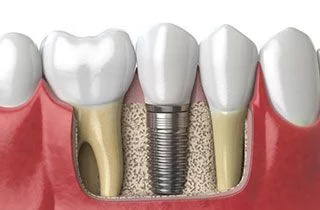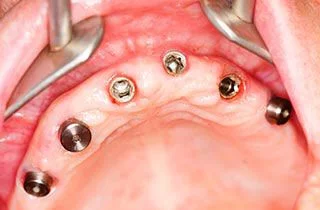What can you do if you don’t have enough bone for implants?
After the loss of teeth, there is no “workload” on the jawbones in that area when you chew. This means that in a short time, the bone in the jaw bone tissue decreases. Thus you will need dental bone grafting for the implants. Whether the patient needs a small or large amount of bone grafting, thanks to today’s modern techniques, it can now take place in the same session as the implantation. The choice only affects the length of the healing period.
How long does dental implant surgery take?
Placing a single implant usually takes about 1-2 hours, with the time increasing with each additional implant. Factors that affect dental implant surgery time include:
Number of implants, whether bone grafting is needed, or anesthesia, the type of implant system, and your overall health. More about timeline of tooth implantation
How painful is dental implant surgery?
Dental implant surgery is usually painless, as if you do not request anesthesia, your dentist will numb the area with a local anesthetic, ensuring that you do not feel any pain during the surgery itself. You may feel some pressure or vibration, but this should not be painful. You may experience some discomfort or soreness in the area for a few days after surgery, but this can usually be managed with over-the-counter pain relievers. The amount of discomfort will vary depending on the complexity of the surgery, the number of implants placed, and your individual pain tolerance.
How long does it take to recover from teeth implant surgery?
The healing process takes a minimum of 3 months. Over this period the bone cells can grow directly into the microspores on the surface of the implants. This bone accretion (also called osseointegration) creates the stable fixation of the implant. Thanks to this the implant will be able to bear the chewing pressure without suffering any damage.
How successful is dental implant surgery?
Dental implant surgery has an exceptionally high success rate of 95-98%, making it one of the most reliable and predictable procedures in dentistry. More about the dental implant rejection symptoms




